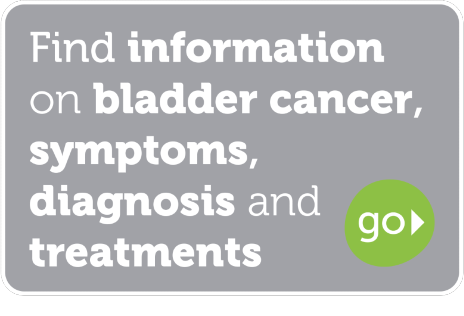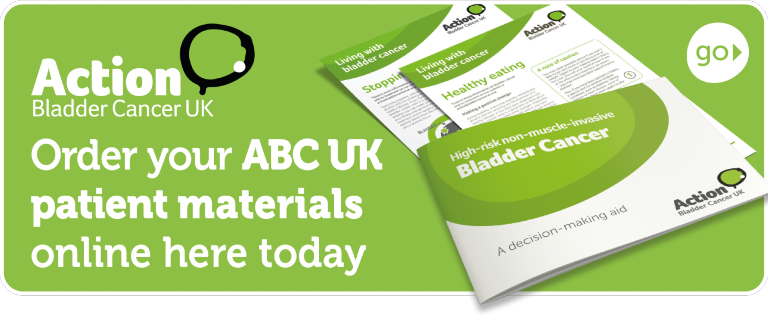Graham's Story
We are very grateful to everyone who has shared their story with us on this website. We know that many people find reading the story of other patients very helpful when trying to make sense of their diagnosis or cancer journey. We also know that these stories can be very powerful in helping to raise awareness of bladder cancer and highlight the urgent need for new treatments, research and support for those with bladder cancer.
If you would like to tell your story please do get in touch with us by email at group@actionbladdercanceruk.org
We can arrange for one of our Patient Support Officers to get in touch to help you tell your story, if that would be helpful, and we also have a 'hints and tips' sheet to give you more ideas about what to write.

Graham was diagnosed in 2020 aged 68 with a non-invasive, but aggressive, form of Carcinoma in situ (CIS)
I am 70 years old (born 1952) and a retired Chartered Building and Civil Engineering Surveyor. Since retiring I have been back to university to study History and I gained a MA in 2021. I now spend my free time reading and writing, including doing book reviews for a couple of specialist publications.
I am married and have two adult children and five grandchildren (born between late 2011 and mid-2018) whom I would very much like to see as adults.
In November 2016, I had a 24 hour episode during which I urgently needed to urinate frequently and although this was just short of being painful, it was very uncomfortable. This was repeated three weeks later and again in January 2017. In early February 2017 I visited my GP who ran the usual tests for prostate cancer and referred me, at my request, to consult with a specialist urologist at Little Aston Hospital in Sutton Coldfield. I was immediately given a flexible cystoscopy, an X-ray and a MRI scan, followed by a urodynamic assessment and several ‘jelly on the belly' scans, none of which revealed anything of concern but I was prescribed with Vesomni tablets. These are a combination of Tamsulosin and Solifenacin. I was also very strongly advised to perform frequent muscle exercises to strengthen my pelvic floor and although I instinctively suspected some sort of urinary tract infection, repeated dip tests showed no evidence of this.
The episodes became more frequent and longer lasting and I started to pass what I described as blobs every now and then immediately after urinating. These blobs varied in appearance from opaque yellow and quite firm to translucent with what was perhaps a small drop of dried blood in the centre of a soft mass. The average size was about 5mm. It is worth noting that other than this I have never had any blood discharge at all. While the actual passing of a blob was not painful, urinating for some hours before the appearance of a blob was very painful indeed. The situation did not improve so I asked my GP to refer me to Queens Hospital, Burton upon Trent, under whose care I placed myself in August 2018. This led to some of the earlier tests being repeated and also the advice to perform pelvic floor exercises, including supervised exercises with specialist nurses at my GP surgery. Throughout all this, the symptoms continued to recur and intensify. The previous urologists had failed to provide the results of the investigations carried out under their care and so I agreed to start again from the beginning.
I was 68 when I was finally diagnosed with a non-invasive but aggressive carcinoma in situ in September 2020 after a rigid cystoscopy and biopsy at Queens Hospital, Burton upon Trent. Obviously, I was far from happy about the diagnosis itself but I was nevertheless pleased that at last there was a known condition to treat. This treatment was intravesical BCG instillations of which I had a total of fifteen during 2021. This programme involved 50ml of BCG vaccine being introduced via a catheter into my bladder once a week for six weeks then a break for a few weeks then three sets of three weekly repeats of the treatment. The BCG had to be held in the bladder for two hours then passed naturally. The after effects of each instillation were very much like the original symptoms that started in 2016 and they did actually intensify as the treatment built up. However, within about three weeks of the final treatment they had disappeared completely and as I write this, ten months later, I seem to be as near normal as most 70 year old men are in the plumbing department. That said, I was initially told that the BCG treatment would continue with gradually diminishing frequency for a further two years but the world-wide shortage of BCG that has happened since then has meant that my treatment now consists of flexible cystoscopies every few months to make sure there are no new cancers in my bladder. I understand that this will continue for some years and if a new but similar cancer appears then the BCG programme will start again. If one of various other forms of bladder cancer is found then it seems an appropriate treatment programme will be chosen from chemotherapy and/or radiotherapy, possibly followed by bladder removal.
The problems that the cancer caused for me were largely ones of practicality arising from my need to be close to a toilet at all times, with only a few minutes notice being sent by my bladder to my brain (or vice versa) that it needed emptying. To a certain extent, the fact that this situation inhibited my social life was masked by the various lockdowns necessitated by the coronavirus pandemic due to which I had to stay at home anyway. The use of Tena pads also helped as, although I seldom had to resort to wetting one, they gave me confidence by knowing that I could ‘let go' without unpleasant and embarrassing consequences if I was out and about. It has now been at least six months since I have worn one and there have been no ‘accidents'.
I have been tempted to say that the pelvic floor exercises, that were the focus of my ‘treatment' for some time, turned out to be of no use but, on reflection, they possibly did enable me to hold back the flow for a few minutes longer than I would otherwise have been able to when I was having one of my ‘episodes'. This has been a very truncated description of what has been a difficult six years for me but I hope it has been of some interest and possibly of some help to any others with similar symptoms. By the way, we never did find out what the blobs were!
Graham regularly attends the Burton patient support group meetings.
October 2022
How we help you
Latest News / Events
Setting up a support group for your patients - Webinar for Nurses - Mon 18 Aug 2025 08/07/2025
This is a FREE ABC UK online Zoom session, which is being run in response to requests from urology and cancer nurses, on how to set up and run a successful patient support group. The session will be led by one of the ABC UK Patient Support team, together with two advanced nurse specialists...











